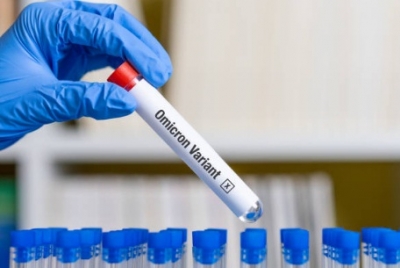Australia Sees Spike in COVID-19 Cases: Experts Say No Need to Panic

Australia has reported a significant increase in COVID-19 cases, with nearly 500 new infections confirmed in the past 24 hours. While this news might raise concerns, health experts are reassuring the public that there's no need to panic. The virus has transitioned to an endemic phase, meaning it's constantly evolving and will likely experience occasional surges.
Understanding the Current Situation
The recent uptick in cases is not unexpected. Scientists explain that COVID-19, like many endemic viruses (think the common cold or influenza), will continue to circulate within the population. This doesn’t mean we’re back to square one; instead, it highlights the virus’s ability to adapt and potentially evade immunity built up through vaccination or previous infection. The key difference now is that a large portion of the population has some level of protection, which significantly reduces the severity of illness.
COVID-19 is Becoming Milder
One of the most encouraging trends is the ongoing observation that COVID-19 is becoming milder. This is largely attributed to a combination of factors: widespread vaccination, natural immunity from previous infections, and the evolution of the virus itself. Newer variants, while more transmissible, tend to cause less severe illness, particularly in those who are vaccinated. Hospitalisation rates and deaths remain significantly lower than during earlier stages of the pandemic, even with increased case numbers.
Why the Occasional Surge?
The occasional surge in cases is a natural consequence of an endemic virus. Several factors can contribute to these spikes, including:
- New Variants: Emerging variants can be more transmissible and temporarily evade existing immunity.
- Seasonal Changes: Like influenza, COVID-19 may exhibit seasonal patterns, with increased transmission during colder months.
- Reduced Immunity: Immunity from vaccination or previous infection can wane over time, making individuals more susceptible to reinfection.
- Changes in Behaviour: Relaxed public health measures or increased social mixing can also contribute to surges.
What Can You Do?
While the situation is being closely monitored, experts advise the public to remain vigilant and take sensible precautions:
- Stay Up-to-Date with Vaccinations: Booster shots are crucial for maintaining optimal protection against severe illness.
- Practice Good Hygiene: Frequent handwashing and covering coughs and sneezes remain important.
- Consider Mask Wearing: Wearing a mask in crowded indoor settings can help reduce transmission.
- Stay Informed: Keep abreast of the latest health advice from reputable sources.
The Bigger Picture
The transition to an endemic phase means that COVID-19 will likely be a persistent feature of our lives. However, with continued vigilance, vaccination efforts, and adaptation to evolving variants, we can manage the virus and minimize its impact on public health. The current surge, while noticeable, doesn't represent a return to the crisis of the past. It’s a reminder that the virus is still present, but our ability to manage it has significantly improved.
For the latest updates and information, please consult the Australian Department of Health website.

:max_bytes(150000):strip_icc()/VWH-GettyImages-2204573402-e071db75f92a40c78aedda9378f9ed86.jpg)



:max_bytes(150000):strip_icc()/GettyImages-1349467208-81b7e89336f44c9883f7b102a0b032cd.jpg)
